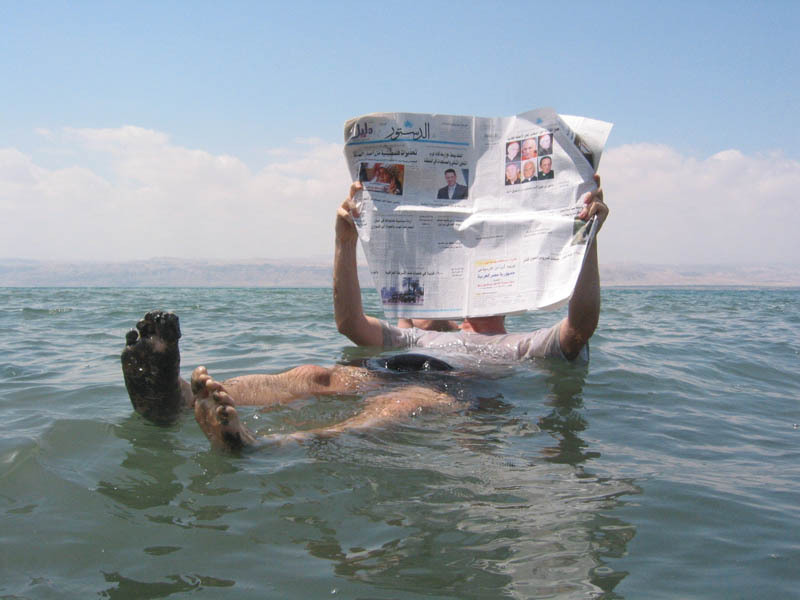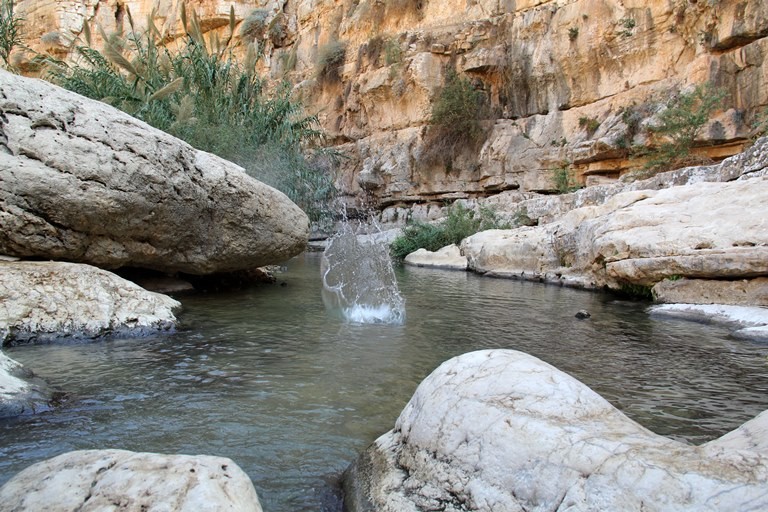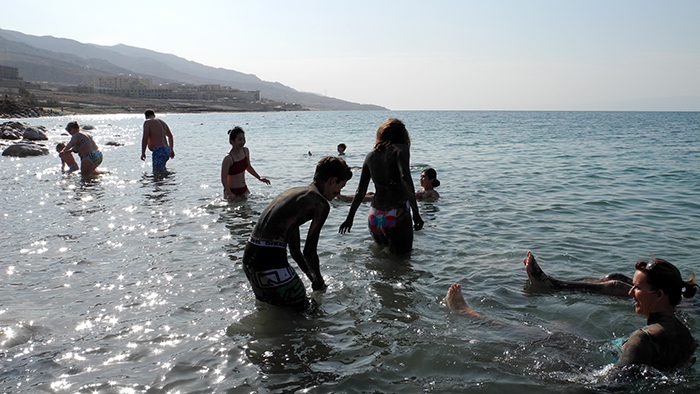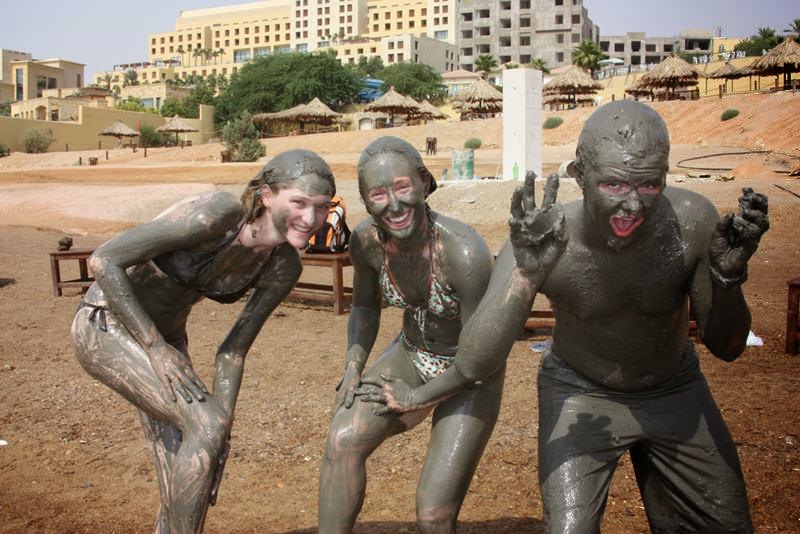Killing It at the Dead Sea: Only a short drive from the Excellence Center in Hebron, the Dead Sea is a perfect day trip getaway for volunteers and students. Last week Excellence Center General Manager Abu Mohammed Tamimi took three volunteers on a road trip to the Dead Sea, stopping in Jericho and Wadi Qelt. The itinerary they followed is the perfect daytrip for those hoping to experience the natural beauty of Palestine.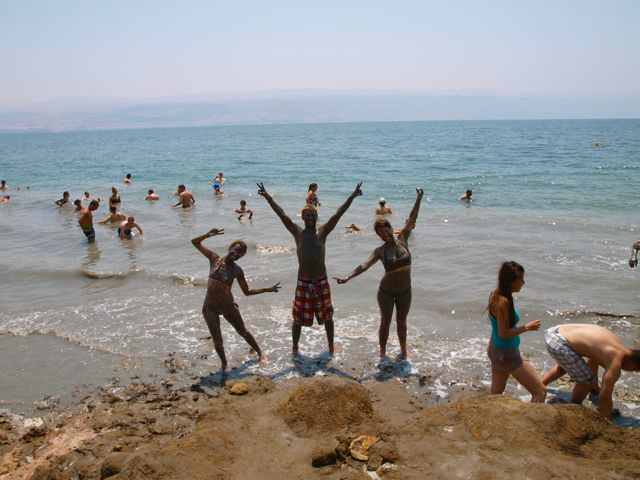
The Dead Sea itself is only an hour and 15-minute drive from Hebron, however about a half an hour from the city is a small spring nestled in the hills outside of Jericho. The stream which the spring feeds into originates in Jerusalem and travels all the way to the River Jordan which acts as the border between Palestine and the Kingdom of Jordan. The road to the wadi is incredibly steep and winds around the hills like a snake. Parking and walking down a dirt path brings you to the entrance of Wadi Qelt with a small information center and restroom facility. In the center of the entrance is a pool with a large circular ring in the middle from which the spring flows out. Visitors dive in in their swimming suits, some doing cartwheels.
The stream can be followed quite a long way. Cliffs border the path as do tall reeds and wild mint bushes. The greenery can seem out of place next to the tall stone and sand hills and dry brown grass prevalent in the region. After an hour, Abu Mohammed took the volunteers to grab fruit and water in Jericho, the oldest continuously inhabited city in the world. Another twenty minutes and they were at the Dead Sea.
The area is heavily developed for tourism. There is a gift shop, restaurant and showers and lockers near the entrance, and a bar closer to the beach. The Dead Sea is also the lowest point on Earth, so one can easily look across it and see Jordan on the other side! One thing you may notice is a sign with the beach rules, but unlike other beaches at the Dead Sea the rules include: no submerging your head, no splashing, and no swimming! Because the Dead Sea is the second saltiest large body of water in the world the water will burn your eyes and ears. Objects in the water are also much more buoyant than in normal sea water, so normal swimming, which involves dunking parts of your body and moving quickly, impossible. When you get into the water simply fall on your back and float! Lifeguards will call to bathers on the loudspeaker in Hebrew, English and Arabic to roll on their back and stop splashing.
The salt and minerals in the water also makes it feel different on the skin, almost slimy. Fariha from the UK, 26, says, “It felt so weird. It was so salty almost itchy!” The mud on the beach also is said to have special properties. Visitors cover themselves in dark brown mud, letting the minerals soak into their skin. The ancient Egyptians actually collected these minerals for the mummification process! Some people, like Fariha, actually collect the mud in empty water bottles to bring home.
Seeing the Dead Sea is certainly a once in a lifetime experience. People as far back as Biblical times and ancient Greek philosophers like Aristotle have been traveling to and writing about this natural phenomenon. The diversion of the River Jordan by humans has meant the Dead Sea has been receding at an alarming rate in recent years. With an uncertain future and an amazing past, you should take the time to visit the Dead Sea during your visit to Palestine.
